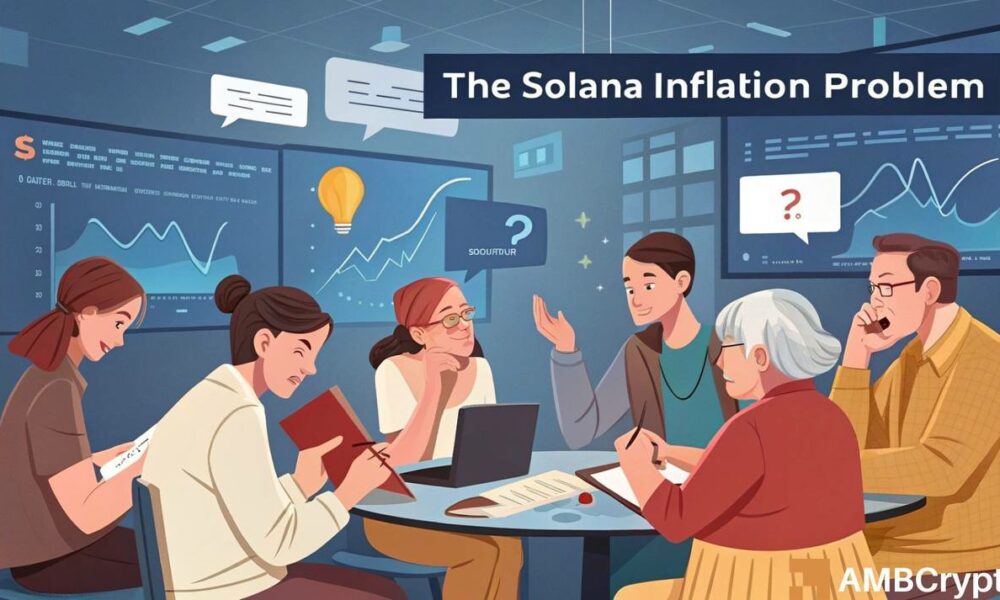The Solana [SOL] community is considering a reduction in the annual inflation rate of the network to 1.5%, prompted by prevailing market conditions. Tushar Jain, who serves as the Managing Partner at Multicoin Capital, put forth the proposal while criticizing the current inflation framework.
During a recent appearance on the Lightspeed podcast, Jain outlined the proposal, stating,
“Our proposal involves adjusting the emission rate based on market dynamics. Currently, we release the same quantity of SOL tokens regardless of market conditions. We are suggesting a more intelligent emission schedule that would actively encourage participation in staking.”
Jain highlighted that the current emission model mints an excess of SOL tokens to uphold network security, a practice he deems unnecessary.
Additional Justifications for Addressing SOL Inflation
By way of background, the primary source of inflation arises from validators staking users’ SOL to secure and sustain network functions. In exchange, stakers receive SOL tokens as compensation, thereby augmenting the token supply.
Jain disclosed that roughly 100 million SOL tokens have been introduced into circulation since 2021. Among the total supply of 592.4 million, 391 million tokens are currently locked in staking, constituting 66% of the overall supply.
The proposal targets a range of 50%-66% staked SOL, arguing that surpassing 67% does not enhance network security.
“Beyond 67%, additional staking of SOL does not offer any extra security assurances since a vast majority of all SOL tokens have been used to authorize each block, making a prolonged attack unfeasible.”
However, falling below 33% could potentially expose the security of the Solana network to risks. It is important to note that the benefits of the proposal extend beyond market efficiency, as it would also alleviate selling pressure, preventing validators from having to sell their tokens to meet tax obligations.
Furthermore, it would enhance the perception of SOL by addressing high inflation that might dissuade individuals from holding the tokens due to devaluation concerns.
Nevertheless, it is worth mentioning that not all community members are fully supportive of the proposal. A pseudonymous DeFi analyst known as Ignas expressed concerns that implementing the proposal would lead to a decline in staking rewards for SOL. In his words,
“Honestly, I am not in favor of the $SOL Inflation Reduction Act. I know it will pass, but I was content with the 20% to 30% APY on $SOL pools in Kamino.”
According to Multicoin Capital, the current model predominantly benefits stakers while diluting the value for non-stakers. If inflation were to be reduced, even non-stakers could stand to gain as their holdings would not depreciate. Additionally, Multicoin Capital posits that this adjustment could catalyze DeFi engagement within the ecosystem.

